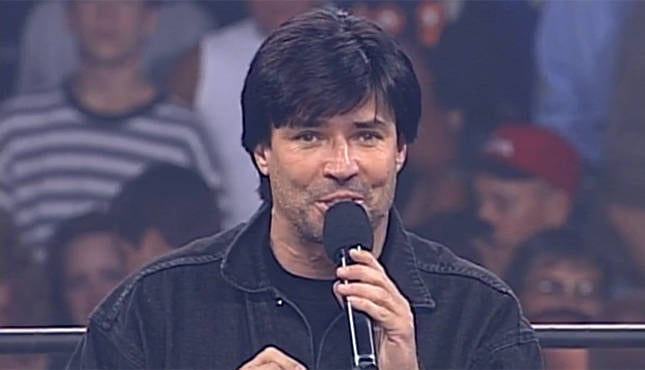wrestling / News
Eric Bischoff Says He Very Seldomly Handled WCW Contract Talks, Why He Didn’t Pay For WWE Airfare
 Image Credit: WWE/Peacock
Image Credit: WWE/Peacock
On the latest episode of Strictly Business, Eric Bischoff talked about handling WCW talent contracts, traveling and more. You can check out some highlights below:
On how airfare is negotiated with airlines when booking talent: “It’s no different than some of the talent who had first class as part of their agreements. It’s reflected in their contracts, the people who did travel were advised of that. They knew that there was a list of everybody who was first class, according to contract. And if your name was on that list, when they booked your flights they booked you first class. If your name was not on that list, then they booked you coach… WCW paid for all travel.”
On why he didn’t pay for air travel while in WWE: “It may have been different [there], because I wasn’t a wrestler. There may have been different categories of talent. Because again as a GM, especially one that only showed up one day a week in most cases. It’s not like I was out in house show loops and things like that. There’s no opportunity for me to make merchandise money. There are no upside opportunities for a General Manager for the most part. So maybe that was the difference, I don’t know. But no, they covered all my travel.”
On whether he handled contract talks with all talent: “I very seldom dealt with contractual issues unless it was, you know, something unique. Randy Savage, Hulk Hogan, a renegotiation for example with Bill Goldberg. That was a little tricky. He wasn’t even due to be renegotiated, and we ended up having to renegotiate with him. So unless a contract was very unusual or it involved — trying to think of the politically correct way to say it, but I don’t give a f**k. Unless the contract negotiations were relevant to a star of a specific magnitude? Those I would handle, or at least be kept very much in the loop if I wasn’t negotiating with them myself. I would be very much in the loop, like copied on everything, made aware of every phone call with attorneys or managers or whatever. But that didn’t happen that often when you think about it
“I would say 80% of the contracts were negotiated or renegotiated without my involvement, so long as they fit within a budget. You know, we had a budget allocation. Somebody wanted — if Kevin Sullivan, for example, had somebody that he really believed in, and that person was coming up for renewal, Kevin would let me know. Or talent relations, or Diana Meyers, usually Nick Lambros would have said, ‘Hey Kevin, these individual’s got six months left in their deal or three months left in our deal, whatever the case may be. I just want to give you a heads up so we can plan accordingly creatively.’ So we weren’t booking somebody into a very, very significant opportunity storyline-wise, only to find out that, ‘Oh, we have to renegotiate because their deal’s up next week.’ You know, you didn’t want that to happen. I’d approve those, you know, but I wouldn’t get involved in them.”
If you use any of the quotes in this article, please credit Strictly Business with an h/t to 411mania.com for the transcription.







